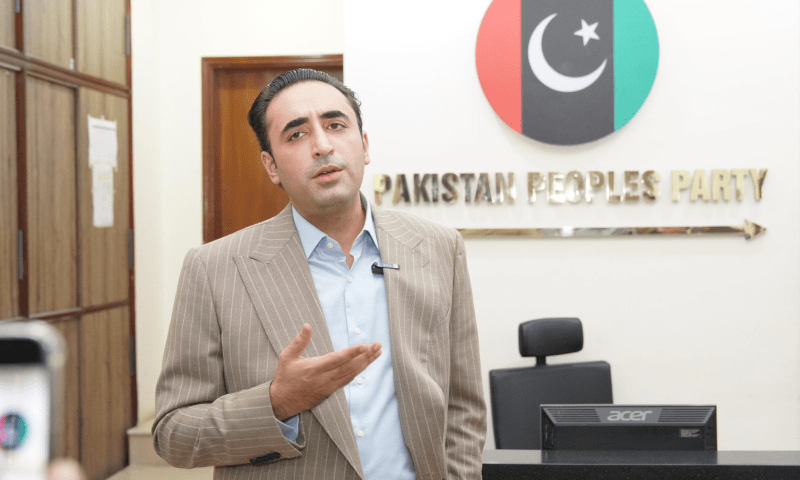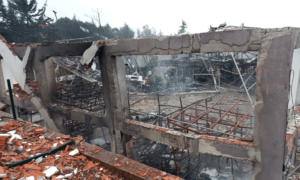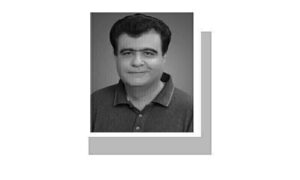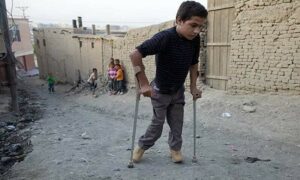• Bilawal accuses ‘N’ of ignoring PPP during key legislative processes, not according the party due respect
• Criticises govt’s handling of security, internet policy
• Calls for ‘National Action Plan 2.0’ to address terrorism
KARACHI: While asserting there is no direct rift with Prime Minister Shehbaz Sharif’s government, PPP Chairman Bilawal Bhutto-Zardari on Thursday delivered a scathing critique of his ruling ally, expressing frustration over the “disrespect” felt by his party despite being in the coalition and unmet agreements between the two parties.
The PPP chairman, in an informal conversation with reporters at Bilawal House, also accused the PML-N of reneging on commitments after the 26th Constitutional Amendment’s passage.
He also hinted at a possible review of the PPP’s eight-month alliance in the Centre with the PML-N-led government in the PPP’s upcoming Central Executive Committee (CEC) meeting, which is expected to be held next month. He said he would present the “facts and ground realities” before party leaders to decide on future strategy.
Mr Bhutto-Zardari offered a critical assessment of the PML-N government’s performance, questioning its effectiveness across areas such as security, political stability and internet policy, and raising concerns over its handling of key national issues.
“There’s no question of displeasure [with the government],” he responded when asked about the relationship between the PPP and the PML-N government.
“Politics isn’t about displeasure; it’s about respect. But, sorry to say, there is neither politics nor respect in the Centre. Wherever in the world there’s a minority government with an agreement with their political partners, the agreed terms are always implemented. We are on the treasury benches to provide moral support, in good faith, without bargaining on every vote. But we expect our agreement [with the PML-N] to be honoured,” he said.
He recalled the process of the 26th Constitutional Amendment when the PPP was ignored during the crucial consultation and only asked to vote in favour of the legislation after the government had completed the formalities on its own.
“I think you would also feel disrespected when a draft of the crucial legislation is passed by the federal cabinet, then it goes to the print and then at the final stage you are provided the copy on the floor of the assembly to read and asked to vote in its favour,” he added.
To a question about feelings within the PPP ranks on the issue and chances of its CEC meeting to discuss the future strategy, Mr Bhutto-Zardari said it was already due and he would soon seek feedback from party leaders on the subject.
“The CEC is already due, and it’s usually called in December,” he said. “So as a chairman, I would definitely put all facts and ground realities before my party. Then, whatever it decides, I am bound to go with that decision.”
He also explained the reason why he withdrew from the judicial commission “in protest” when the PML-N allegedly backed out from the agreed terms of its formation.
“One of the terms of COD [charter of democracy] was that both PPP and PML-N would have equal representation in the judicial commission. But the government defied that agreed term and I withdrew my name in protest,” he said.
The PPP chairman was also critical of the security policy of PM Shehbaz’s government amid growing terrorism attacks, mainly in Balochistan, which has also attracted China’s ire. He stressed that the government needed to go beyond “lip service” and devise a new national action plan to combat terrorism.
“It makes it more obnoxious that they [Chinese nationals] are not only our friendly guests, but also they are here working to benefit our economy and our people,” Mr Bhutto-Zardari said in response to a question about the recent attacks on Chinese nationals.
“After every incident, it has become a precedent that we see strong statements, condolence meetings and visits of our dignitaries to the embassy concerned. But the people of Pakistan want to see our government willing to fight against terror and not just doing lip service,” he said.
“We believe that we need to collaborate with our international partners to expose this international network. Domestically, we need a National Action Plan 2.0 to fight terror, which is spreading from Balochistan to our tribal areas.”
Taking a jibe at the government’s internet security policy, he said that those at the helm of securing the country’s digital landscape were not even aware of the use of the technology and its tools.
“Those who make such decisions don’t even know what a VPN [virtual private network] is and how to use the internet,” he responded with a broad smile on his face to a query about reports of further restrictions on VPN usage.
“They don’t know about the importance of the internet speed and, frankly speaking, they don’t even care,” he said.
“They don’t even discuss such matters with us, nor are our inputs sought on such issues. Technology and agriculture are two sectors where Pakistan can benefit a lot on the economic front. Unfortunately, the government policies are causing a dent in both sectors.”
Published in Dawn, November 15th, 2024







